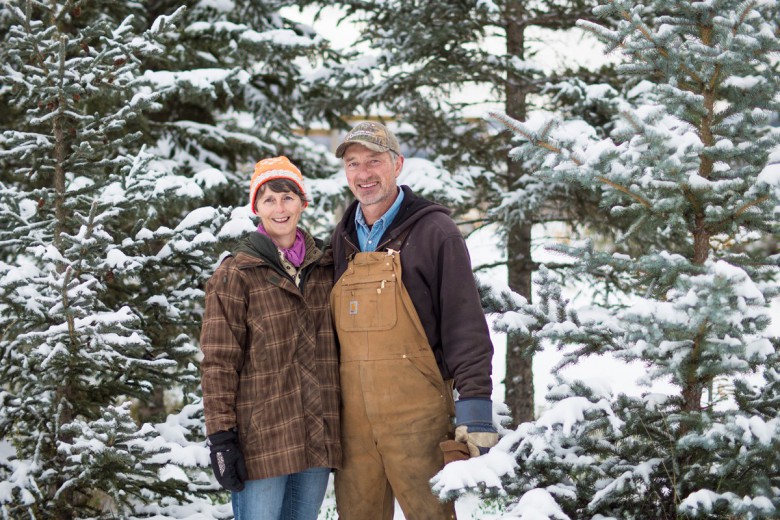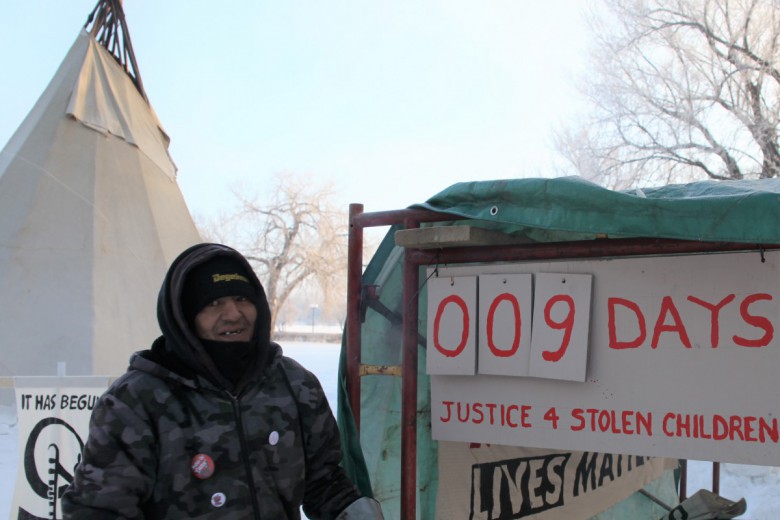On Monday, October 24, 2016, the Supreme Court of Newfoundland and Labrador issued a court order to evict 22 Indigenous and settler Labradorian land protectors from the Muskrat Falls site and arrest them if they didn’t comply. Among those listed was Justin Brake, a journalist and editor for The Independent. (The full list of people named in the court order is here.)
The court order, applied for by Crown corporation Nalcor Energy and the Muskrat Falls Corporation, cited Brake and the land protectors for trespassing and failing to comply with an earlier court injunction.
When the court order was handed to Brake and the land protectors, Brake left the accommodation space and is now reporting from outside of the Muskrat Falls camp.
We, members of independent media on Indigenous land, unequivocally condemn the criminalization of journalist Justin Brake. This action is a demonstration of contempt for the constitutionally protected freedom of the press.
Brake was the only reporter working inside the Muskrat Falls gates. He provided regular, nuanced, and detailed coverage of the land protectors’ fight to uphold their sovereign rights to fish and hunt on the land. He also provided vital coverage of the RCMP’s response to the resistance.
Brake has explicitly stated that the threat of arrest and attendant costs of fighting a constitutional battle against a Crown corporation has informed his decision to leave the camp. The asymmetry of resources and power in this situation is staggering, and the effect of the threat on his freedom is clear.
Brake has also said that once he left, there were no reporters embedded among the land protectors. This court order has silenced the single source of reporting on the Indigenous-led Muskrat Falls resistance.
The intimidation of Brake and the land protectors must be understood in the context of ongoing colonialism of Indigenous peoples and lands in Nunatsiavut and NunatuKavut, which are lands that have been shared by Inuit and Innu for centuries. The Innu, Inuit of Nunatsiavut, and Southern Inuit of NunatuKavut have not consented to the terms of Nalcor Energy’s hydroelectric project.
Among the Truth and Reconciliation Commission’s 94 recommendations is a call for the national media to “provide dedicated news coverage and online public information resources on issues of concern to Aboriginal peoples and all Canadians, including the history and legacy of residential schools and the reconciliation process.” We know that this is the responsibility of all media. To threaten an independent journalist reporting on Indigenous land struggles with arrest is not only an assault on a constitutionally protected freedom, but also an assault on the process of reconciliation. Brake himself has framed his work in this context.
We call on all media, independent and corporate, to condemn the criminalization of journalism and activism on Indigenous land. We also call on the public to support principled independent media that reports on these struggles and holds corporations and the militarized police accountable. We call on the media and the public to actively support Indigenous peoples in protecting their land and rights, and to represent and report on these actions with integrity and a commitment to reconciliation.
As the story continues to develop, we will be watching how the judiciary, the RCMP, and Nalcor respond to the public’s outrage over the unacceptable criminalization of a journalist and Indigenous land protectors. We will also be watching how they fulfill their responsibilities to TRC recommendations and build nation-to-nation relationships. We know now that the government of Newfoundland and Labrador has reached an agreement with the Innu Nation, Nunatsiavut Government, and the NunatuKavut Community Council that will involve Indigenous assessment of the engineering reports. While this is not the final outcome, the land protectors have created an opening for greater oversight over the project.
Justin Brake’s reporting revealed what’s at stake with Muskrat Falls and how hard the land protectors are fighting to prevent the contamination of the land and water. It is incumbent upon journalists, editors, settlers and allies who are guests on Indigenous land to support Indigenous land protectors exercising their inherent rights, and to support journalists like Brake who dare to report on settler-colonial corporate-judicial cooperation meant to silence resistance.
Signatories:
Tanya Andrusieczko and Rhiannon Ward
Editor and Publisher, Briarpatch Magazine
Ashley Zarbatany, Darryl Richardson
Editors, The Media Co-op
David Gray-Donald, Nadia Kanji, Marsha McLeod, Jon Milton, Brenna Owen and Billie Pierre
Board of Directors, The Media Co-op
David Bush
Rankandfile.ca
Andrew Loewen
Former Editor, Briarpatch Magazine
Lorraine Endicott
Managing Editor, Our Times Magazine
Sheila Sampath
Editorial and art director, Shameless Magazine
Jesse Brown and Robert Hiltz
Publisher and interim editor, CANADALAND
Geordie Dent
Journalist
Toronto Media Co-op founder
Travis Cole
Managing Editor
Blackflash Magazine
Rebeka Tabobondung
Publisher, Muskrat Magazine
Aiden Enns
Editor, Geez Magazine
Kim Elliott, Maya Bhullar, Michael Stewart
rabble.ca






